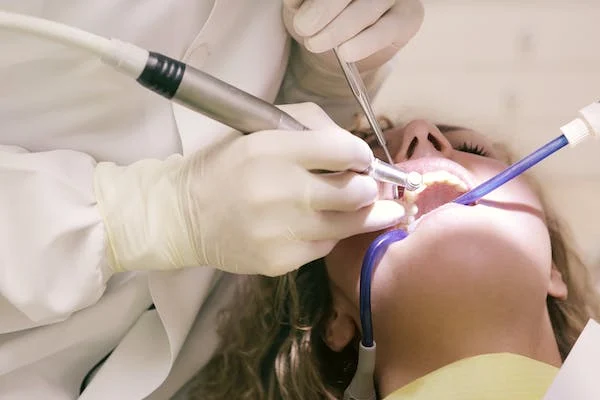When it comes to dental care, many of us are drawn to the promise of affordable services. Who wouldn’t want a sparkling smile without breaking the bank? Budget dental clinics often advertise low prices, enticing patients with seemingly unbeatable deals on cleanings, fillings, and even crowns. But is that low price tag really the bargain it appears to be?
The truth is, affordable dentistry can come with hidden costs that you might not notice until it’s too late. From unexpected fees to subpar materials, and follow-up treatments that aren’t included, the “affordable” option might end up costing you more—in both money and health—than you initially imagined.
Let’s peel back the curtain and explore the true cost of affordable dentistry by diving into the expenses, quality issues, follow-up considerations, and risks that budget clinics often don’t highlight.
What Hidden Expenses are Involved in Affordable Dentistry Clinics?
At first glance, a low price for dental treatment seems like a great deal. But many budget clinics rely on a pricing model that conceals several additional costs, making your final bill far from affordable.
- Consultation and Diagnostic Fees: Some clinics advertise cheap procedures but charge separately for exams, X-rays, or consultations that you might expect to be included.
- Additional Procedures: After initial treatment, you may discover you need extra work such as root canals, gum treatment, or more fillings. These often aren’t included in the upfront price.
- Materials and Lab Fees: Charges for crowns, dentures, or bridges may be “add-ons” rather than part of the quoted price.
- Anesthesia and Sedation: If your treatment requires sedation or anesthesia, these can significantly inflate the bill.
- Follow-Up Visits: Budget clinics may not include necessary follow-ups or adjustments, which means extra visits come with extra costs.
- Urgent or Emergency Care: If complications arise post-treatment, emergency visits and repairs often aren’t covered.
- Financing and Interest: Some clinics offer financing with low monthly payments but add interest or fees that increase overall costs.
These hidden expenses can quickly turn what seemed like an affordable option into a wallet-busting ordeal. Transparency isn’t always a priority in budget clinics, so it’s essential to ask detailed questions before committing.
How Does the Quality of Materials Affect the Cost of Budget Dental Care?
Not all dental materials are created equal, and the quality of what’s used can drastically impact both cost and long-term results. Affordable clinics often cut corners here—sometimes to the detriment of your smile and health.
- Cheap Fillings and Crowns: Lower-cost materials like amalgam fillings or basic metal crowns may save money upfront but lack durability and aesthetics compared to modern composites or porcelain.
- Increased Wear and Tear: Budget materials tend to wear down faster, chip, or discolor, which can lead to frequent replacements.
- Potential Allergies or Sensitivities: Inferior materials may trigger reactions or sensitivity in some patients.
- Poor Fit and Finish: Lab-fabricated prosthetics made with cheaper processes might not fit perfectly, causing discomfort, irritation, or bite issues.
- Reduced Longevity: A crown or filling from a low-cost clinic might last just a few years, whereas high-quality materials can last decades.
- More Frequent Repairs: The cost of repeatedly fixing or replacing low-grade dental work adds up, often surpassing the price of quality treatment done right the first time.
While premium materials cost more initially, they often provide better comfort, appearance, and durability—making them a wiser long-term investment for your oral health and finances.
Are Follow-Up Treatments Usually Included in Low-cost Dental Services?
A critical piece that many affordable clinics omit from their pitches is the cost and importance of follow-up care. Dental work often requires monitoring and adjustments, especially for complex treatments like crowns, implants, or orthodontics.
- Adjustments and Repairs: Crowns, bridges, or dentures may need tweaks for comfort and function, which often aren’t part of the original cost at budget clinics.
- Post-Treatment Exams: Follow-up visits allow dentists to check healing progress and catch complications early. These can be billed separately.
- Management of Complications: If infections, sensitivity, or damage occur, addressing these problems usually involves additional procedures and costs.
- Preventive Care: Some affordable clinics focus on “one-and-done” procedures but don’t offer ongoing preventive services to maintain oral health.
- Warranty or Guarantees: Low-cost dental work often comes with little to no warranty, meaning you bear the full cost if something goes wrong.
Skipping or postponing follow-up care can jeopardize your dental health and lead to more expensive treatments down the line. Knowing what’s included—and what isn’t—can save headaches and money.
What Risks Come With Choosing the Cheapest Dental Clinics?
Opting for the cheapest dental clinic can be tempting but comes with significant risks that often go unspoken until problems arise.
- Inadequate Qualifications: Some budget clinics may employ less experienced or poorly supervised practitioners, increasing the chance of mistakes.
- Substandard Sterilization: Cutting corners on infection control protocols puts patients at risk of cross-contamination or serious infections.
- Incomplete Diagnoses: Rushed or minimal examinations can miss underlying issues that require immediate or specialized care.
- Poor Communication: Clinics focusing on volume over quality might not spend time explaining treatment options, risks, or aftercare instructions properly.
- Shortened Appointment Times: Limited time per patient often means less thorough procedures and a higher likelihood of complications.
- Use of Outdated Technology: Lack of investment in modern dental technology can impact the precision, comfort, and safety of treatments.
- No Personalized Care: Treatment plans may be one-size-fits-all, ignoring your unique oral health needs and preferences.
These risks can compromise not only your smile but also your overall health. Dentistry is an investment, and cutting corners can lead to costly consequences.
Affordable dentistry might sound like a dream come true—but as with many things, if it seems too good to be true, it probably is. Hidden fees, inferior materials, lack of follow-up care, and potential health risks can transform a budget-friendly visit into an expensive ordeal filled with pain and frustration.
Smart dental care means looking beyond the sticker price. Ask questions, check credentials, and consider the long-term value of quality treatment. Your smile deserves more than shortcuts—it deserves expert care that balances cost with comfort, durability, and safety.
If budget is a concern, many reputable dentists offer flexible financing plans or phased treatment options that don’t sacrifice quality. Investing wisely in your oral health today can save you money, stress, and discomfort tomorrow.
Remember: the true cost of affordable dentistry isn’t just what you pay upfront—it’s what you risk paying later. Choose wisely, smile confidently, and treat your teeth with the care they deserve.
Invest in Your Smile with Confidence — Choose Cascade Dental Today
At Cascade Dental, we understand that quality dental care is about more than just price—it’s about trust, expertise, and lasting results. Our dedicated team combines advanced materials, personalized treatment plans, and transparent pricing to give you exceptional care without surprises.
Don’t compromise your oral health for a quick deal. Experience the difference of dentistry that puts your smile and wellbeing first. Schedule your consultation with Cascade Dental today and take the confident step toward a healthier, brighter smile that lasts a lifetime.



